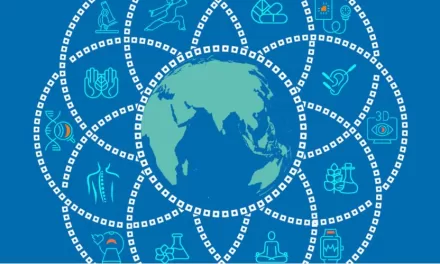In a groundbreaking effort to improve the lives of breast cancer survivors, a team of researchers from the University of Chicago is developing a “bionic breast” aimed at restoring the sense of touch for patients who have undergone mastectomy and breast reconstruction. This pioneering project addresses the profound physical and emotional impact that the loss of breast sensation can have on women after surgery.
The project is led by Dr. Stacy Tessler Lindau, a UChicago Medicine gynecologist, and neuroscientist Sliman Bensmaia, whose previous work on prosthetic limbs has helped restore a sense of touch for patients with amputations. The bionic breast project is an extension of Bensmaia’s research, which demonstrated that tactile feedback is crucial for prosthetic devices to be truly functional. Tragically, Bensmaia passed away unexpectedly in 2023, but his work continues to inspire the ongoing research.
“While breast reconstruction has focused on cosmetic appearance, we’re aiming to address the functionality and sensation that are so important to women’s sense of self,” said Dr. Lindau. “This project could revolutionize how we think about recovery and restoration after breast cancer.”
The first clinical trial for the device is set to begin in early 2025. The bionic breast would involve the implantation of small electrodes to the chest that connect to a flexible sensor under the skin. This sensor would capture the pressure from physical touch, such as a hug, and send the information to nerves in the breast, restoring the sensation of touch.
Heather Tubigan, a 36-year-old breast cancer survivor from suburban Chicago, is among those who can benefit from the project. Tubigan was diagnosed with breast cancer in 2020 and opted for a unilateral mastectomy, keeping her healthy right breast. While grateful to be in remission, she has experienced firsthand the emotional toll of losing sensation on her left side.
“I can feel my son when I hug him on my right side, but not on my left,” Tubigan shared. “It’s a strange feeling, like there’s something missing. The idea of having that sensation back would be amazing.”
For many women, the loss of sensation after mastectomy is more than just a physical change—it’s a profound emotional and psychological loss. Dr. Nora Jaskowiak, surgical director at UChicago Medicine Breast Center, emphasizes that many patients overlook the long-term effects of breast surgery when making decisions in the midst of a cancer diagnosis. “The loss of sensation affects intimacy, sexuality, and even day-to-day experiences like hugging a loved one or holding a child,” Jaskowiak explained.
For Tubigan, the return of breast sensation would not only restore a piece of her identity but also enhance her experience as a mother. After undergoing fertility preservation before treatment, she was able to conceive naturally and gave birth to a daughter in November 2024. Tubigan now cherishes the moments spent nursing her baby, which she describes as a beautiful connection.
The bionic breast project aims to help patients like Tubigan reclaim some of what is lost during treatment. Dr. Lindau’s team is working with urgency to bring this technology to patients, as many women live with the physical and psychological aftermath of mastectomy for years. If successful, the bionic breast could offer a revolutionary solution to restoring the sense of touch to millions of breast cancer survivors.
As the team prepares for the first clinical trials, Lindau remains optimistic about the future. “This is just the beginning,” she said. “Our vision is to restore not only form but function—to give these women back a part of themselves they thought was lost forever.”
The technology is still years away from becoming publicly available, but the promising early steps signal a major shift in how breast cancer treatment is approached, offering hope for a more comprehensive recovery for patients facing mastectomy.












